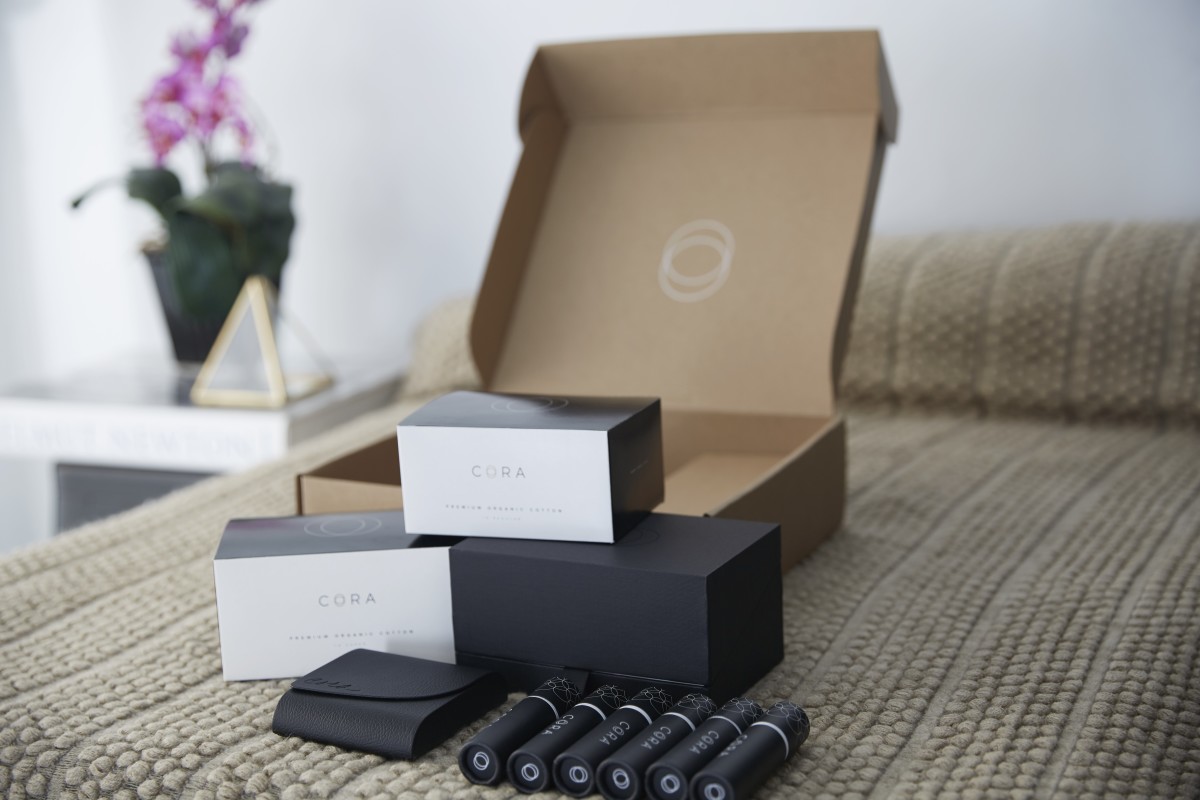At a time when a woman is running for president and pay equality for women is finally being discussed in earnest, it should come as no surprise that the taboo around menstruation cycles should be broken. Molly Hayward is doing her part with the recently launched Cora.
Headquarterd in Kensington at Maken Studios, Cora is a subscription-based organic cotton tampon delivery service. Aiming to be “a modern solution to period management,” Cora functions much like other monthly box subscription services. A customer picks the number of tampons they want to receive each month, the absorbency they need and how often they want to be billed with monthly ($15), quarterly ($39), or annual ($139) options.
“It’s pretty incredible to have witnessed the heightened awareness around issues of menstrual health and women’s wellbeing,” said Hayward, a Philly native and Cora’s founder. “Launching our own line of products and having the response we’ve had is a signal that there is a hunger for healthy, modern, conscious products for women, and that there’s a David and Goliath opportunity here as far as shaking up what has been to date a pretty stagnant market dominated by two major corporations.”
https://twitter.com/CoraWomen/status/603243861490667520
Cora is hoping that its sleekly designed and consumer-safe product will help with that shakeup. The tampons and carrying cases are discreetly designed and made of organic materials, according to the company’s website. This focus on safe products is a big selling point for the company, which lists the statistic that the the average woman will use more than 10,000 tampons over the 40 years she menstruates during her life.
Cora also operates on a “giving model.” The company partners with local, women-run village factories in India that produce biodegradable sanitary pads. Cora, in partnership with other organizations in India, helps set up these partnerships, which provide a key source of revenue for the factories’ home communities. Cora then distributes the pads for free in India, so that girls who might not otherwise be able to go to school while on their period can do so in comfort.
“Our biggest goal right now is to better understand the key growth drivers of our business,” Hayward told Technical.ly, “so that we can do everything we can to get safe and healthy organic Cora products into the hands of as many women as possible, both in the U.S. as well as in developing countries.”
Kensington-based Cora wants to classy-up your tampons







